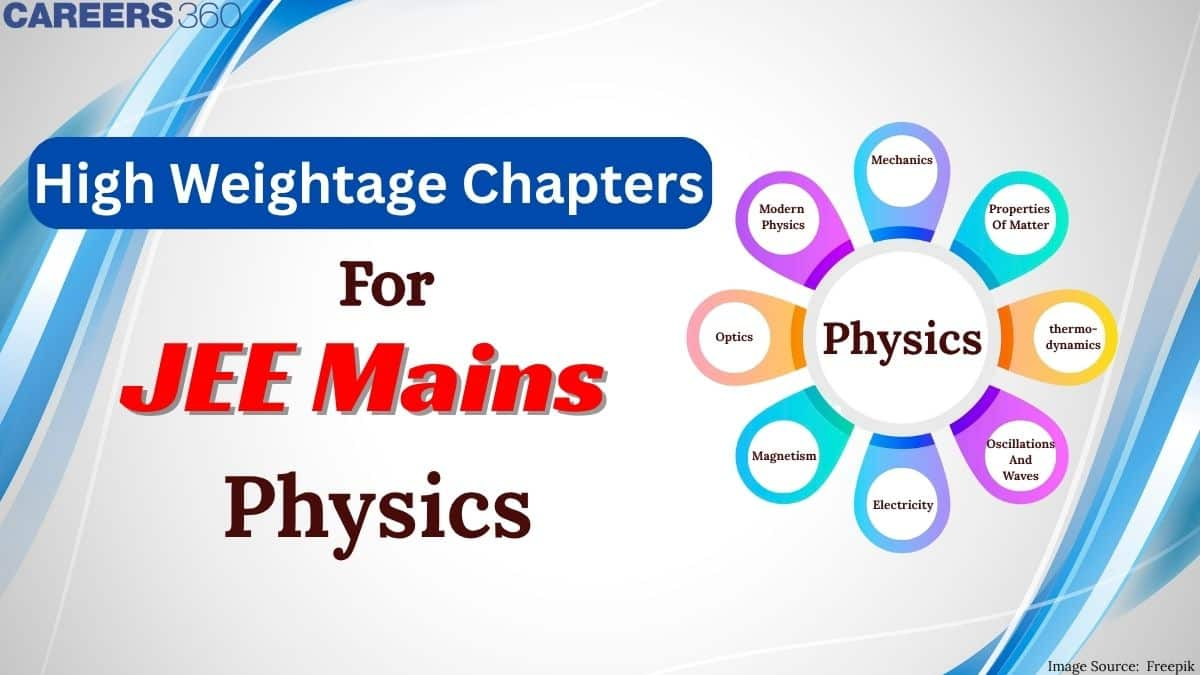To score well in JEE Main 2026 Physics, you need a focused and strategic preparation plan that emphasizes JEE Main physics chapter-wise weightage. Based on the latest trends and JEE Main 2025 analysis, Optics (13.26%), Electrostatics (10.74%), and Properties of Solids and Liquids (9.05%) are the most scoring areas, contributing significantly to the paper.
You should also give strong attention to Rotational Motion (6.53%), Magnetic Effects of Current and Magnetism (6.32%), and Physics and Measurement (6.11%), as they frequently appear in both numerical and conceptual questions. Chapters like Atoms and Nuclei (4.84%), Oscillations and Waves (4.42%), Thermodynamics (4.63%), and Current Electricity (4.63%) also hold steady weightage and can boost your score if prepared well.

